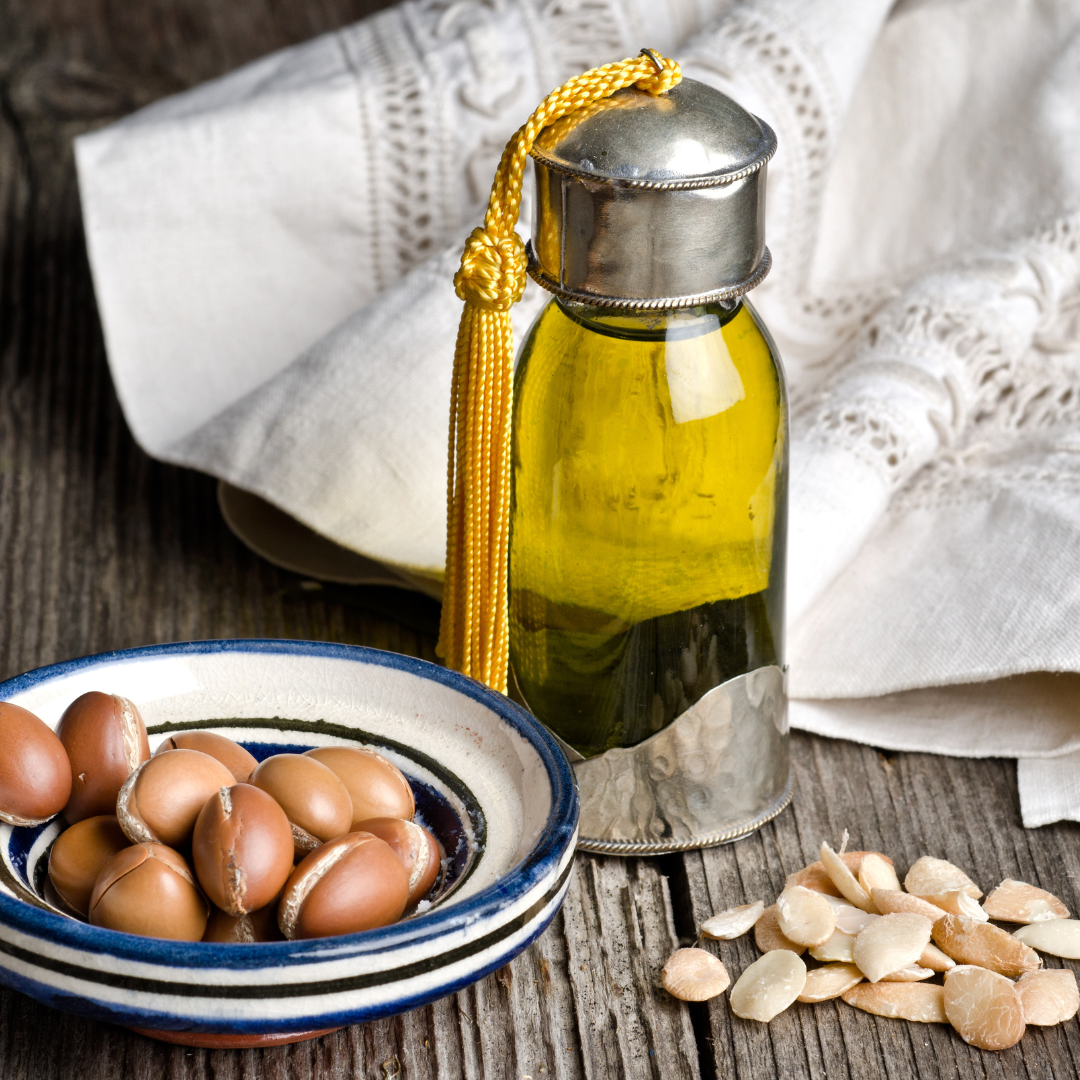- Published on
The Magic of Moroccan Argan Oil
- Authors

- Name
- Adil ABBADI
Introduction

Welcome to the world of Argan Oil, one of Morocco's most precious exports. Derived from the kernels of the argan tree, this oil has been a staple in Moroccan beauty rituals for centuries, praised for its hydrating, nourishing, and healing properties. Often referred to as "liquid gold," Moroccan Argan Oil is renowned for its versatility, enriching everything from skincare routines to culinary creations.
- What is Moroccan Argan Oil?
- How Argan Oil is Extracted
- Benefits of Argan Oil for Skin and Hair
- Culinary Uses of Argan Oil
- How to Use Moroccan Argan Oil
- Conclusion
- Discover More
What is Moroccan Argan Oil?
Argan oil comes from the Argan tree, native to southwestern Morocco. The oil is hand-extracted from the kernels found inside the tree’s fruit, a labor-intensive process traditionally done by Berber women. This pure, cold-pressed oil is packed with essential fatty acids, antioxidants, and vitamin E, making it an invaluable ingredient in both cosmetics and cooking.
How Argan Oil is Extracted
 The extraction process of Moroccan argan oil is intricate and time-honored, passed down through generations. Here's a step-by-step breakdown:
The extraction process of Moroccan argan oil is intricate and time-honored, passed down through generations. Here's a step-by-step breakdown:- Harvesting: Argan fruits are collected once they fall naturally from the tree, as they are fully ripened at this stage.
- Drying: The fruits are dried in the sun, allowing the pulp to be easily removed.
- Cracking the Nuts: The women of Berber cooperatives manually crack open the argan nuts using stones, a labor-intensive task that reveals the kernels inside.
- Grinding and Pressing: The kernels are then ground into a paste, and traditionally, this paste is pressed by hand to extract the oil. In modern practices, cold-pressing machines are also used to retain the oil's nutritional value and purity.
- Filtering: The freshly pressed oil is filtered to remove impurities, resulting in the rich, golden argan oil known for its numerous benefits.
This method of extraction ensures that pure argan oil retains all of its nutritional properties and antioxidant-rich goodness, making it highly sought after worldwide.

Benefits of Argan Oil for Skin and Hair
Skincare Benefits
- Hydration and Moisturization: Argan oil is deeply moisturizing, making it ideal for dry and sensitive skin types. It absorbs easily without leaving a greasy residue.
- Anti-Aging Properties: The oil’s high antioxidant content helps protect against free radical damage, reducing the appearance of fine lines and wrinkles.
- Healing and Repairing: Due to its anti-inflammatory properties, argan oil is often used to soothe eczema, psoriasis, and acne-prone skin.
Hair Care Benefits
- Strengthening and Repairing: Applying argan oil can restore shine and softness to hair, making it an excellent choice for treating split ends and frizz.
- Promotes Hair Growth: Regular use may help stimulate hair follicles, encouraging stronger, healthier hair growth.
Culinary Uses of Argan Oil
Argan oil is also used in Moroccan cuisine, known for its nutty flavor and rich nutrients. Culinary-grade argan oil is often drizzled over salads or used as a dip for bread.
How to Use Moroccan Argan Oil
- As a Daily Moisturizer: Apply a few drops to the face after cleansing to lock in moisture.
- For Hair Treatment: Massage a small amount into the scalp and through the ends of your hair for an overnight treatment, then rinse in the morning.
- In the Kitchen: Add a tablespoon to your salad dressings or drizzle over roasted vegetables for a delicious, healthy boost.
Conclusion
Moroccan Argan Oil is a true multitasker, benefiting your skin, hair, and even your diet. Whether you are looking to add hydration to your beauty routine or a new flavor to your cooking, this ancient Moroccan oil holds the key to natural, sustainable care. Experience the magic of argan oil and discover why it has become a prized staple in homes around the world.
Discover More
Looking for more tips on using Moroccan Argan Oil? Stay tuned for additional beauty recipes and wellness advice!
